On Tuesday evening, the FCMAT (Fiscal Crisis and Management Team) presented its report and recommendations to the CCSF Board of Trustees at a special board meeting. The head of the team, Michelle Plumbtree, prefaced the report by saying that it is, by nature, “negative reporting.” The team recognized that CCSF has many positive elements that are not included in the report, which is designed to focus on financial problems. It said the report was designed to present the District with a range of options for cost-savings.
It should come as no surprise that the College is in serious financial trouble. In this sense, FCMAT confirms what we already knew. As part of its analysis, while acknowledging that no other community college district is comparable to CCSF, FCMAT identified five other community college districts for comparison and based some of its analysis on comparisons with these districts.
The FCMAT team pointed to major areas they considered problematic for CCSF’s financial viability, calling into question employee hiring and compensation practices for both faculty and classified staff. Presenters noted throughout that many of their recommendations would require collective bargaining.
- The team was particularly concerned with the high proportion of full-time faculty, considering this a liability. They also called into question providing benefits for part-time employees (faculty and classified) who work 50% time or more. The report also echoed concerns about the District’s unfunded liabilities (i.e. retiree health benefits and workers compensation).
- FCMAT criticized the District for its lack of an enrollment management plan or ability to make ongoing decisions about which courses to schedule based on enrollment data. They spoke of the need to increase productivity (class size).
- Among many other considerations, the team stated that although there is no statewide standard for release (or reassign) time, CCSF has much higher expenditures in this area than the comparison districts. They also called into question the Department Chair structure and the release time involved.
- Interestingly, FCMAT’s findings point to some different conclusions from AACJC’s recommendations and other often-discussed assumptions. The report concludes that CCSF does not have too few administrators and that the expenditures for administrative functions at CCSF is not inconsistent with other districts. Additionally, analysis of the cost/revenue ratio between Credit and Non-Credit programs did not find significant differences.
Our College undoubtedly has areas in need of improvement, including rational class scheduling, and the FCMAT report provides substantial additional data about the District’s finances and a range of fiscal options for the Board to consider. A few appear to be common sense, but many are extremely difficult, and some, in our view, are fully at odds with educational quality and workers’ rights.
AFT 2121 is concerned that FCMAT’s analysis vastly overstates the impact of AFT members’ salary and benefits on the District’s fiscal condition. We disagree with the characterization that gains made during three decades of collective bargaining constitute a thoughtless process leading to overspending. Rather, decisions about increasing the full-time faculty corps and parity for part-time faculty have been a long-term, incremental process that led to larger agreement within the college community. These practices serve to improve educational quality and access. We continue to view these gains as essential to the wellbeing of our faculty, students, and the institution overall.
AFT 2121 has a long-standing history of working with the District to ensure the health and wellbeing of the College, its employees, and its students. We expect and hope that this mutual commitment to problem-solving will continue as we move forward together in response to this current crisis. That does not mean we are able or willing to roll back decades of important gains for our membership and our students.
AFT 2121 is in the process of analyzing the complete report and the comparative data it presents. We encourage everyone to read it (download here).
Did you notice? Nothing in FCMAT’s recommendations resolves the biggest financial issue we face: the tremendous loss of state revenues over the last several years. Turning our financial picture around—saving our City College—also means supporting Prop A and joining AFT 2121’s campaign to pass Prop A and Prop 30 and say no to Prop 32! Let us know you want to help at getactive@aft2121.org.


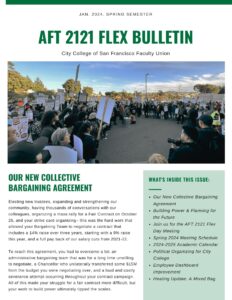
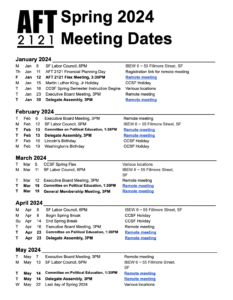

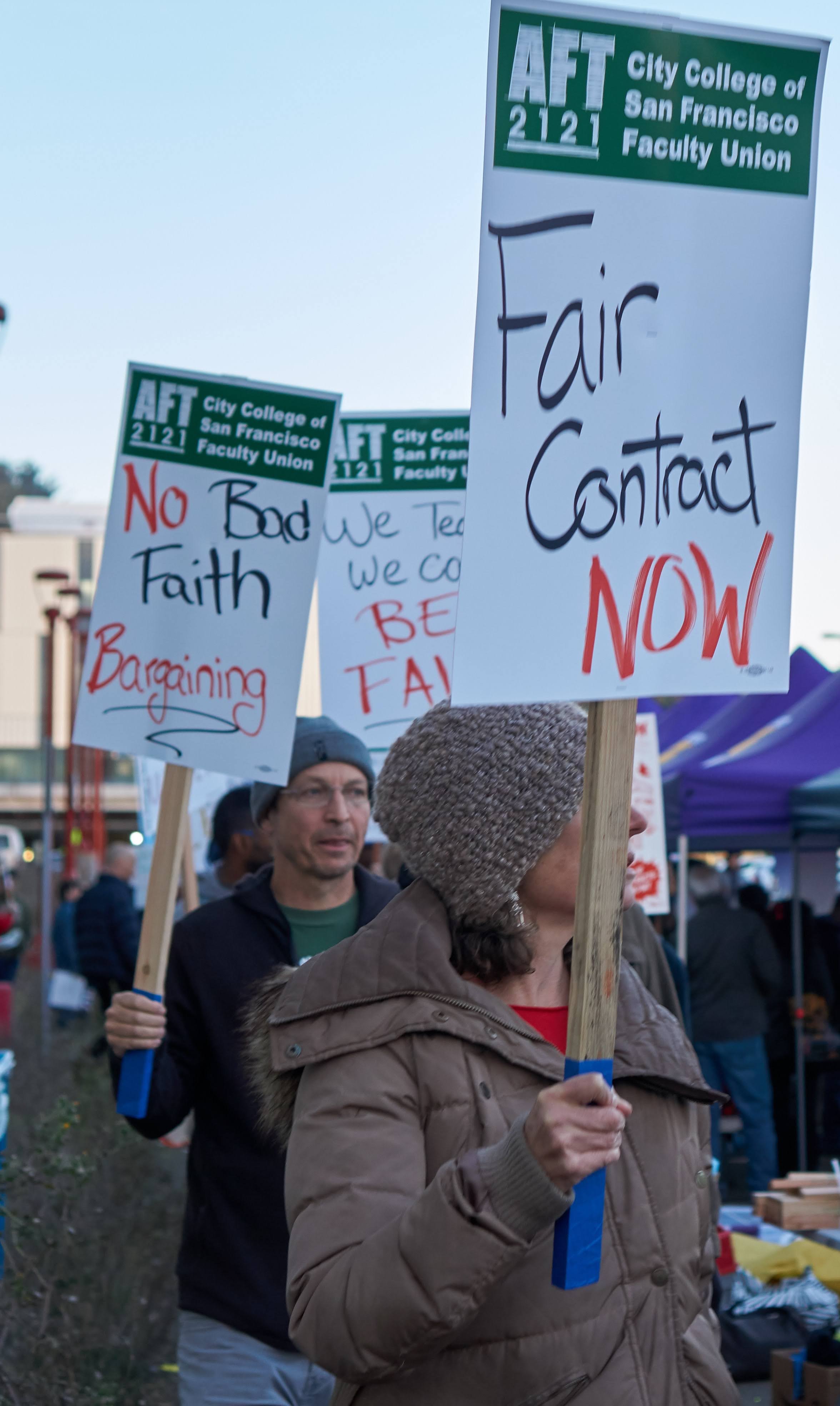
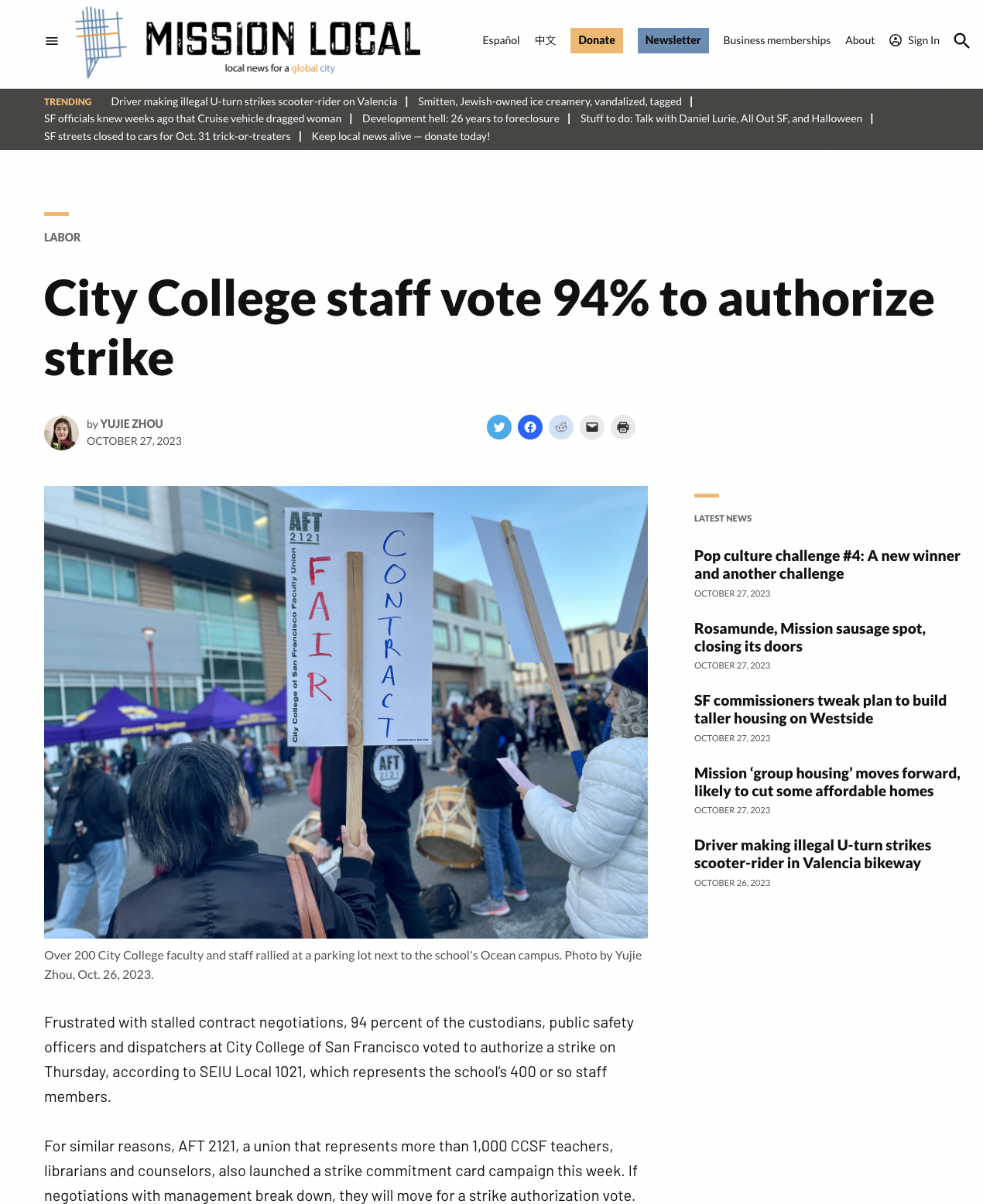
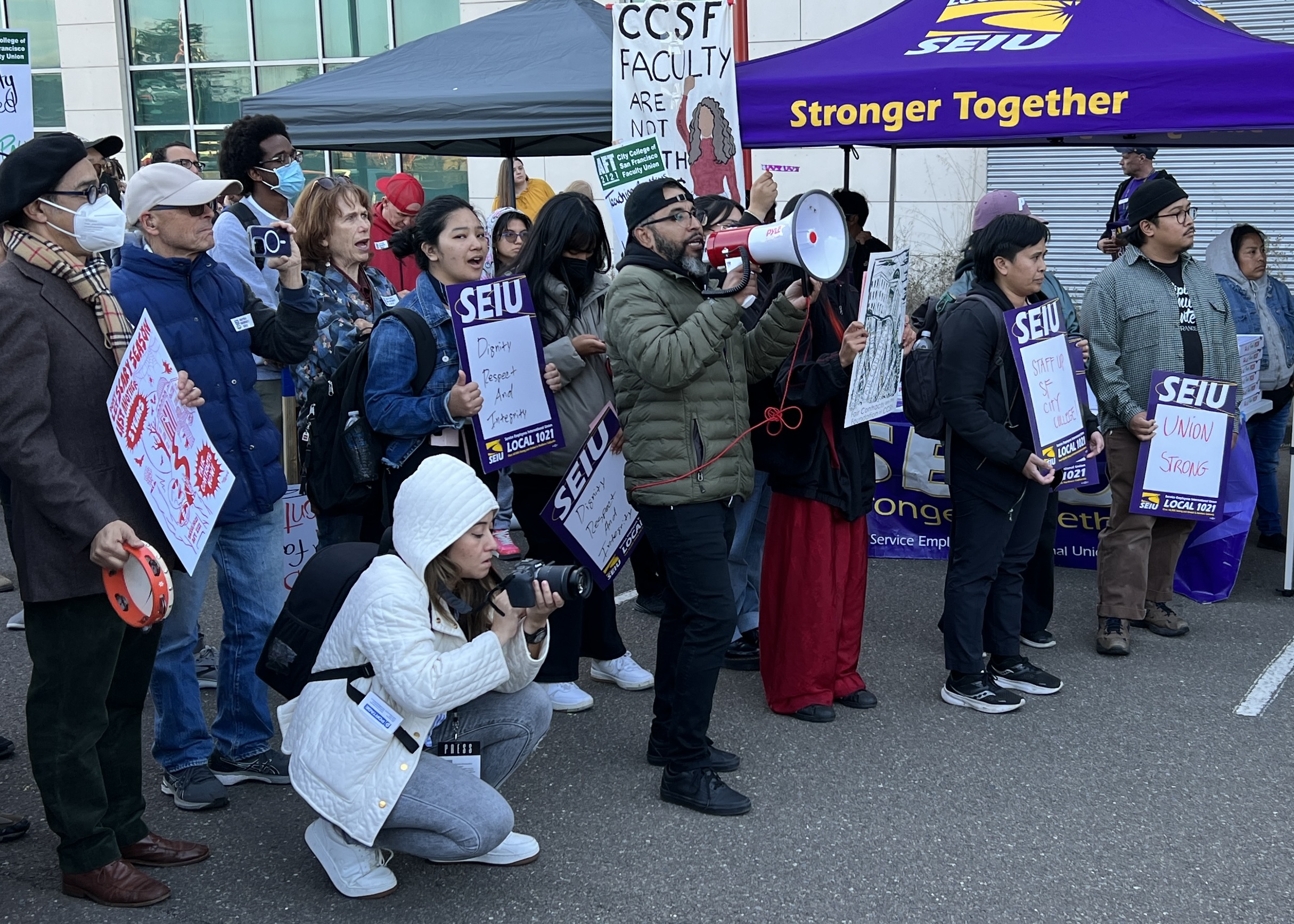
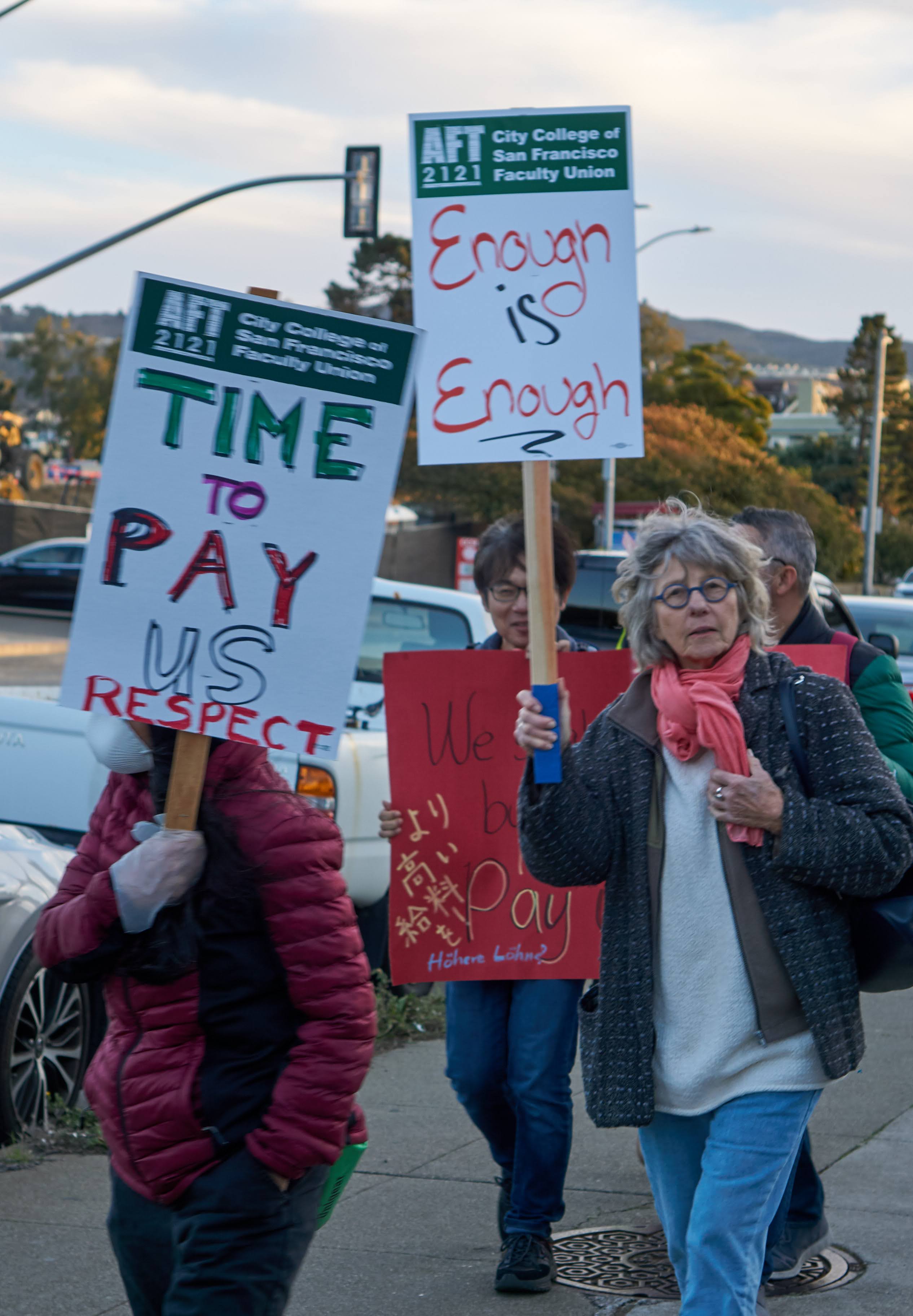
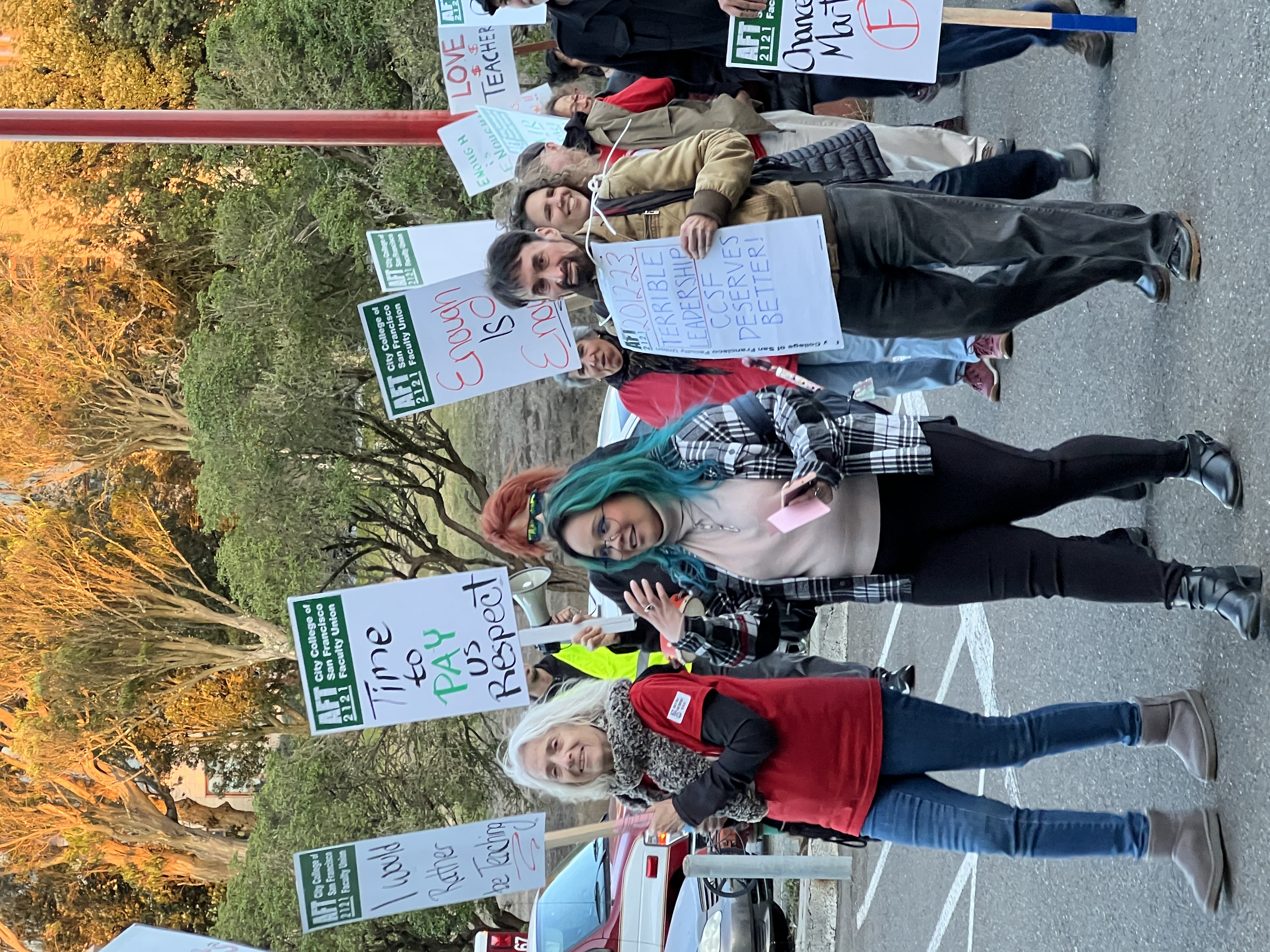
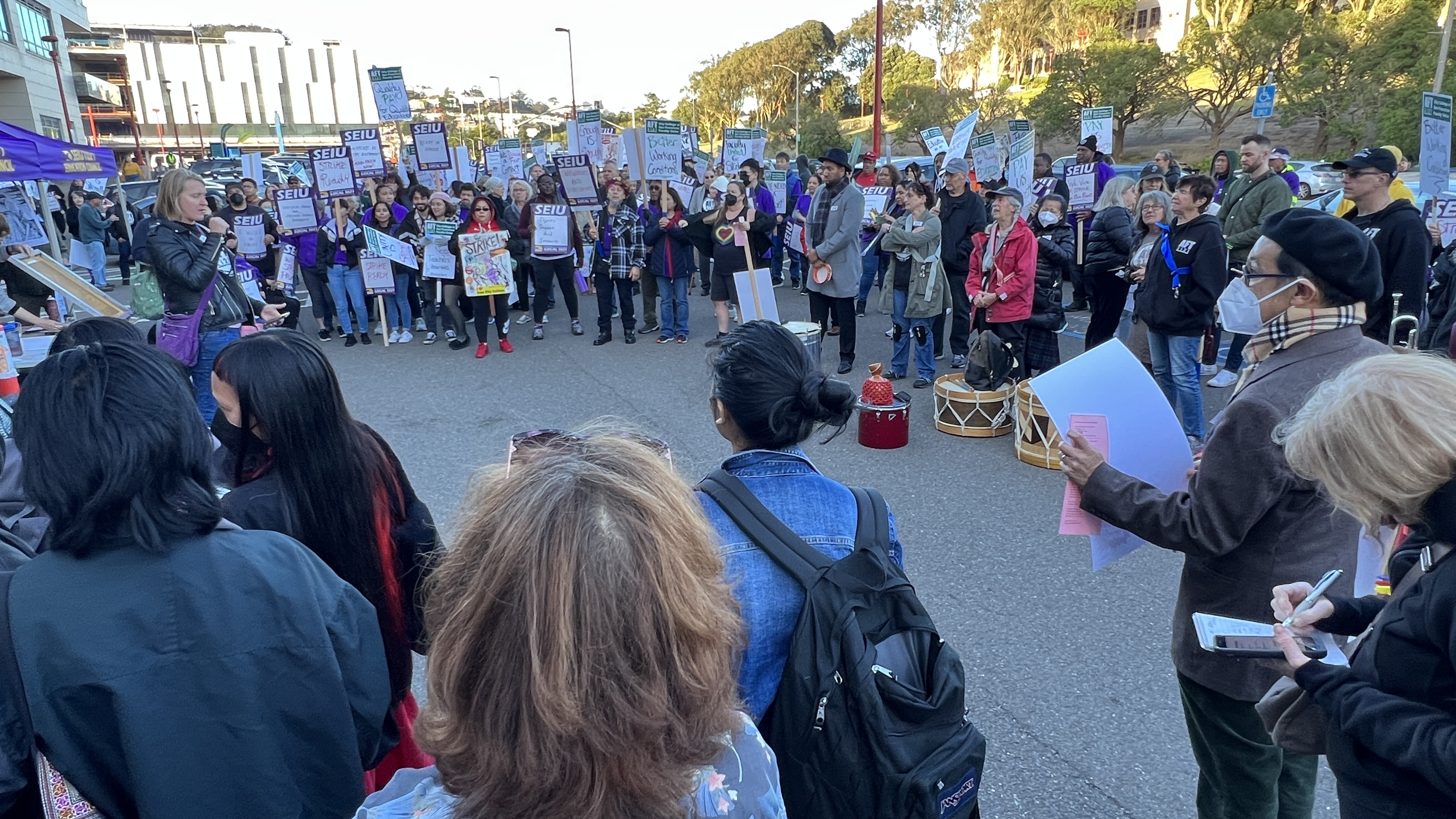
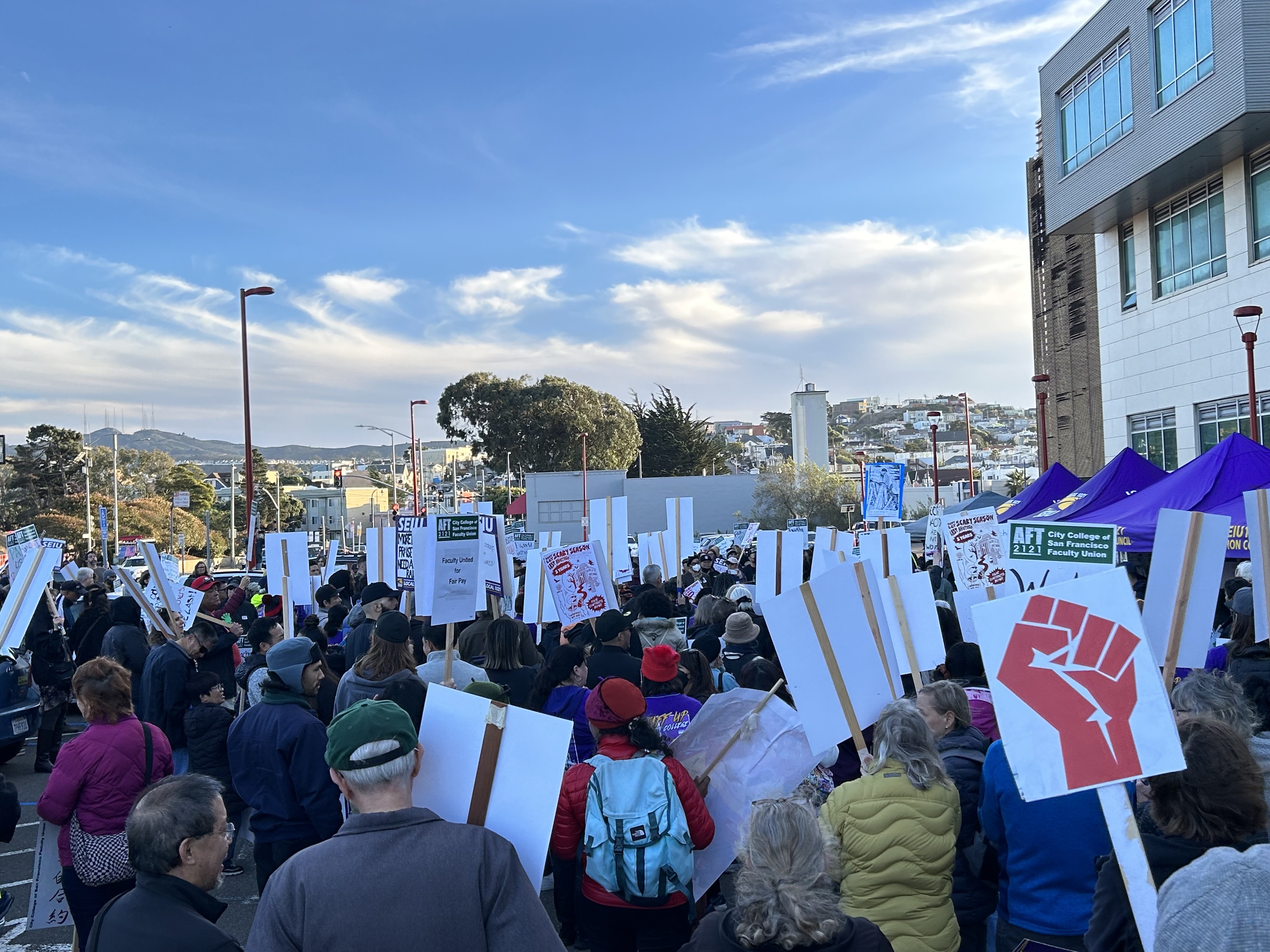
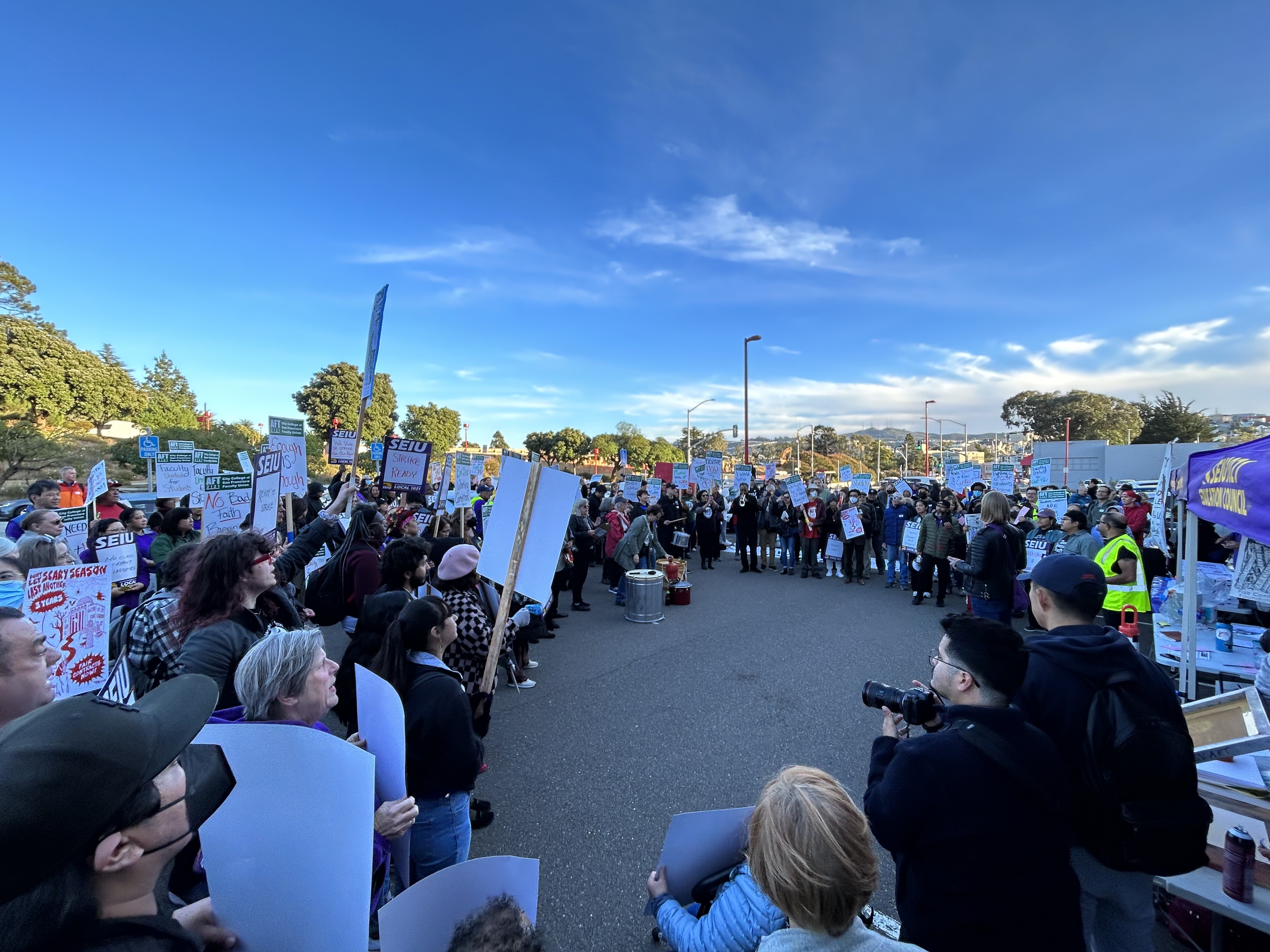

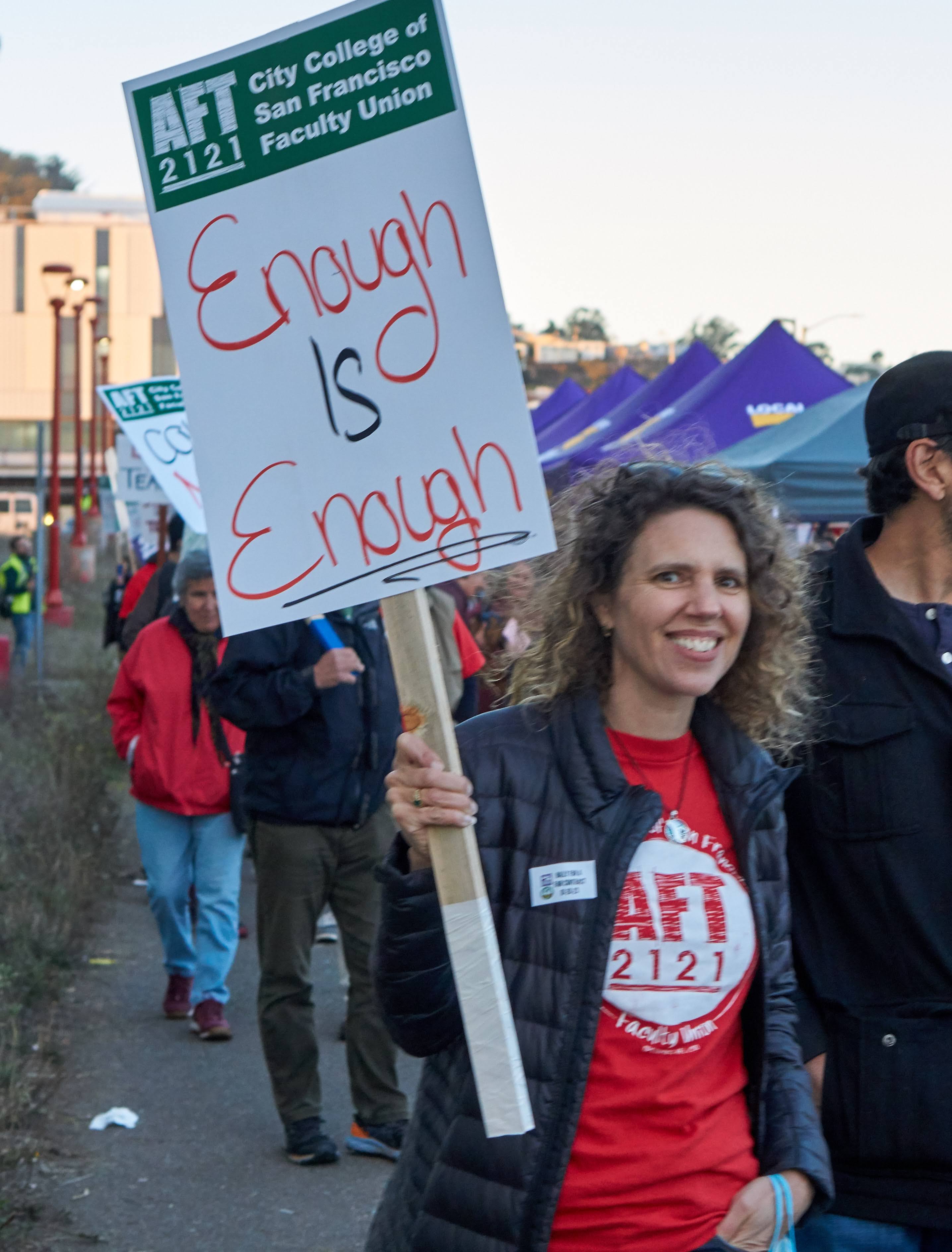

Follow Us!